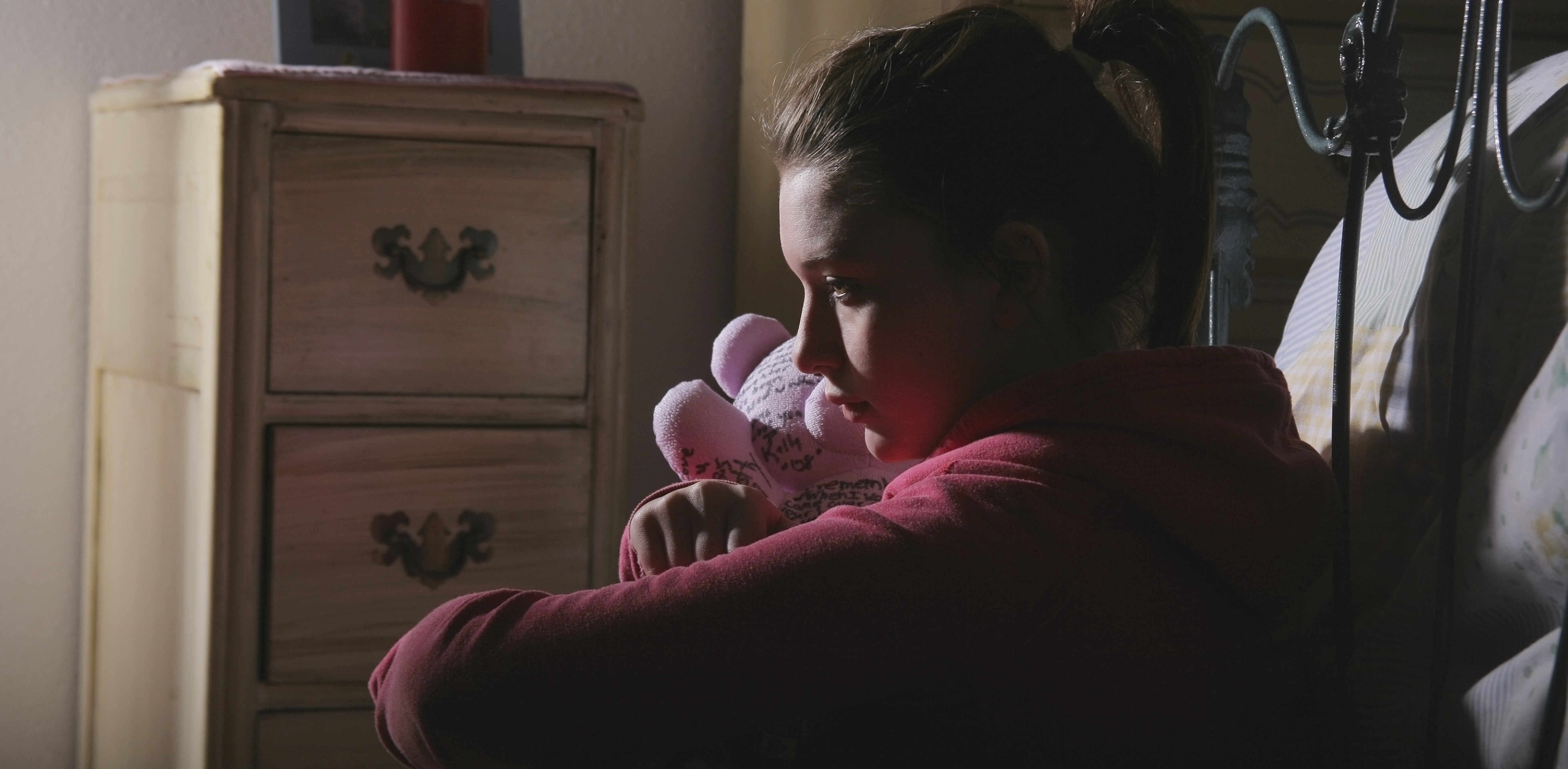A KU student tells Tone Lise Bergheim about her struggle after being molested by her father.
Imagine if the one person who is meant to protect you, is the one who traumatised you.
Stephanie Hanson*, 23, and a KU student, tells the story of the Christmas she will never forget.
When Stephanie was 10 years old she was celebrating the holiday with her family.
Her parents had invited some relatives to stay, so her mother was sharing her sister’s bed and Stephanie shared with her father so the guests could use her parents’ bedroom.
She had slept in the same bed as her father several times before, but this time was different.
“After I had gone to bed and fallen asleep, he came in,” she says. “I was lying in the bed, facing the wall and I woke up as he came stumbling in the room.
“I remember him smelling of liquor as he climbed into the bed right next to me.
“He then moved in closer, so that there was a minimal amount of space between us and then he started touching me. At first I tried to move further away, but there was only so much I could do since I was pinned between him and the wall.
“I froze. I remember that I didn’t say anything, I didn’t move, I just lay there – terrified, shocked.
“He touched me all over, and it lasted for quite some time.”
She adds, saddened at recalling the moment: “I am grateful every day that he never took the final step and had sex with me.”
Stephanie takes a deep breath before she continues to share the horrific memories. She talks about the mixed feelings she had when waking up the next morning.
“He did what he always does with everything that reflects badly on him – he pretended that it didn’t happen,” she says.
“When we woke up the next morning he was acting as if nothing had happened, he never spoke of it, and he never acted any different towards me.
“When he started to act like this, it made me question myself. Maybe it didn’t happen? Maybe I was just exaggerating everything? So I ended up repressing the incident and kept it to myself for several years.”
Stephanie managed to find the courage to tell her mother what had happened to her three years later.
Her parents were going through a divorce and she was living with her mother. They had been driving to her aunt’s house for a family birthday party.
“All of a sudden I just told her what had happened,” she says.
“I said it in a way that could be compared to me asking someone to pick something up from the grocery store, it was calm and normal.
“I just looked at her and said: ‘Mum, by the way, dad has touched me.’
“I remember the surprise in her face as she looked at me and said: ‘what?’ and I repeated myself.
“She stopped the car by a bus stop and got so furious that she started hitting the steering wheel and crying her eyes out.”
According to the National Society for the Prevention of Cruelty to Children (NSPCC) a child is more likely to be sexually abused by someone they know, such as a relative, friend, peer, family friend or a person in a position of trust, rather than a stranger.
Over 90 per cent of the abuse is done by a family member or a loved one and only one in three children tells a third party about the abuse.
A large burden was lifted off Stephanie’s shoulders when she finally told someone about the worries and trauma she had been keeping to herself in fear of not being believed.
Her mother wanted her to talk it over with a professional and Stephanie attended meetings with a local psychologist.
After a few meetings with the doctor, her father was brought in for a session and Stephanie got to confront her father for the very first time.
“He didn’t know anything, he had no idea why he was there before he sat down on the sofa and once he heard, he got really mad. I think he got more surprised than angry, because I don’t think he ever thought I would tell anyone, nevermind talk to anyone about it,” she says.
After the original confrontation, Stephanie was left alone with the psychologist once again, but the conversation took a turn for the worse.
Her nightmare came true, she was not believed. She was told that her father was a good man, a man who had done nothing wrong and that she was spreading lies and making up stories.
“When I came out of the meeting I walked straight over to my mum and told her that I was done with all of this.
“I didn’t want to come here anymore. And that was the last time I ever spoke to anyone about it, until now.”
The NSPCC says that in most cases friends and family of the perpetrator have a hard time believing they would ever abuse a child, as most seem perfectly normal contrary to popular believes.
About 23,000 cases were recorded by police in England and Wales, in 2012-2013.
Stephanie never pressed charges against her father.
She says: “My mother wanted to go to the police when she found out and I was considering it myself, but I decided not to.
“There was no way he would be found guilty for it, I had waited too long. Also, I didn’t have any evidence that he had done it.
“It had happened three years earlier and he denied it with every bone in his body.”
She says that she and her mother decided to let it rest.
“I understand why things were left alone, but now I wish we had done it, I truly do,” she adds.
Thirteen years later she is going to university and making something of her life.
Stephanie says: “When I would have to talk to him in the last 10 years, he would constantly tell me how I ruined his life.
“How I am the source to all his misery. But what about me?
What about the ways he ruined my life?”
Stephanie says that she understands how an incident such as hers can destroy a person and that in her case it has ruined her trust in men.
“It is a lot simpler for me to have one-night stands and just forget about them the morning after because I know that if it gets serious, I will eventually have to tell them about my past and how is anyone supposed to handle that?” she says with a sad smile.
*Stephanie’s name has been changed to protect her identity.

